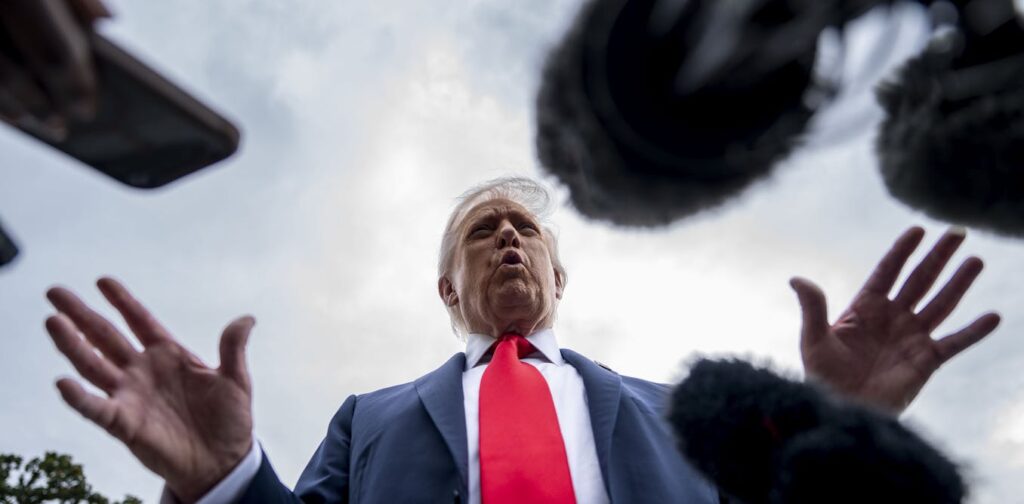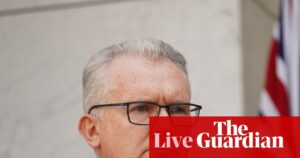
In a heated exchange that underscores the often contentious relationship between the media and political figures, former U.S. President Donald Trump accused ABC journalist John Lyons of “hurting Australia” during a press engagement in Washington. Lyons, the ABC’s United States correspondent, was probing Trump about his business dealings while in office, a line of questioning that seemed to provoke a strong reaction from the former president.
Lyons was gathering information for an upcoming ABC Four Corners program when he asked Trump about the increase in his wealth since re-entering office and questioned the appropriateness of a sitting president engaging in substantial business activities. Trump deflected the inquiry by stating, “my kids are running the business,” and claimed that most deals were finalized before his presidency.
Trump’s Reaction and Diplomatic Implications
Upon learning that Lyons was from the Australian Broadcasting Corporation, Trump retaliated with a sharp critique, stating, “In my opinion, you are hurting Australia very much right now. And they want to get along with me.” He further threatened to inform Australian Prime Minister Anthony Albanese about Lyons, adding, “You set a very bad tone.”
The White House amplified Trump’s remarks through an official response, labeling Lyons as a “rude foreign Fake News loser” and echoing Trump’s command for silence with a terse “Quiet.”
This exchange comes as Prime Minister Albanese prepares for his first meeting with Trump, scheduled to occur on the sidelines of the United Nations leaders’ week. The meeting, now confirmed by Trump’s comments, represents a significant diplomatic engagement, with Australia under pressure from the U.S. to increase its defense spending.
Defense Spending and Strategic Interests
The Albanese government has been actively addressing defense commitments, recently announcing a $12 billion investment over a decade in a naval facility in Western Australia. This move aligns with U.S. expectations for Australia to boost its defense budget from approximately 2% of GDP to 3.5%.
Defense Minister Richard Marles emphasized Australia’s defense spending, noting, “There are different measures around the world of percentages of GDP. I mean, if you look at the way in which NATO accounts for its own spending in terms of percentage of GDP, based on that metric, our spending on GDP today in terms of defense is around 2.8%.”
Media Freedom and Diplomatic Tensions
The incident with Lyons adds a layer of complexity to the upcoming diplomatic meeting. Historically, Trump’s interactions with other world leaders have sometimes been unpredictable, raising concerns within the Prime Minister’s Office about the dynamics of the initial encounter between Trump and Albanese.
The planned Four Corners program, which aims to scrutinize Trump’s business dealings, could further strain relations. The ABC has publicly supported Lyons, asserting, “John Lyons is a highly awarded journalist and one of the most experienced and respected reporters in Australia. His job is to ask questions. He has the ABC’s full support.”
Looking Ahead
As the meeting between Albanese and Trump approaches, the Australian government continues to navigate the delicate balance of maintaining strong bilateral relations while upholding journalistic freedom. The outcome of this diplomatic engagement could have lasting implications for both countries’ strategic interests and the broader media landscape.
Observers will be closely watching how this situation unfolds, particularly in light of the ABC’s investigative program and the broader context of U.S.-Australia relations. The dynamics between media scrutiny and diplomatic discourse remain a critical area of focus in the evolving political landscape.






